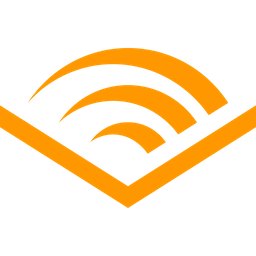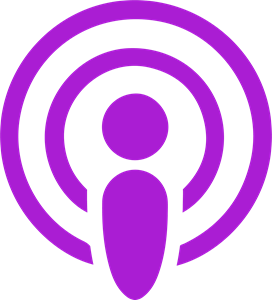Prevention by Civil Society & Consumers
In this episode, Fuzz Kitto discusses the critical role of consumers and civil society in the prevention of modern slavery. He emphasises the power of consumer choices, highlighting the importance of ethical purchasing to combat slavery. Fuzz shares the story of impactful campaigns, such as the Cotton Campaign in Uzbekistan, which led to significant changes in the cotton industry through consumer awareness and corporate accountability. He also emphasises the role of civil society organisations in raising awareness, educating communities, and advocating for stronger laws and policies against slavery.
Listen to Slavery Unravelled - Conversations about being slavery free wherever you get your podcasts!
G’day! And welcome to the podcast Slavery Unravelled. I’m Fuzz Kitto the CoDirector of Be Slavery Free.
This is the fourth a mini series on prevention in modern slavery. We have looked at the importance of prevention, and how it is better to build a fence at the top of the cliff than to run an ambulance at the bottom of the cliff. Then we looked at the role of businesses, then the role of governments and in this podcast we are looking at the role of consumers and civil society. These are the 3 legs on the society stool.
We have a simple change theory.
Slave traders buy and sell people. They do it to make money. A lot of money! In consuming countries we can choose what we buy. Buyers have great power as we are able to choose what we buy. If consumers ask companies what they are doing to check for modern slavery, then finding out which companies are making efforts to trace where their goods come from and find out what is happening there – to inform their buying choices. Companies are focussed on making products and profits.So, if they know that consumers don’t want goods produced from modern slavery they can tell the farms, factories and fishers they can’t accept goods made from modern slavery – then it cuts back the demand for slavery and we can starve the slave traders and reduce the demand. Even primary school children get this!
So what is the role of consumers and civil society in preventing modern slavery?
I want to look at 3 areas:
Campaigning.
Reputation is key for a company as it is for the political aspirations both in the country and internationally, and sometimes they come together.
Let me tell you about the Cotton Campaign that Be Slavery Free was a part of. Uzbekistan was a key cotton producing country, it is 6th in the world but it was higher. When the Cotton Campaign launched in 2007, the Uzbek Government was forcing over 1 million children and adults, including medical staff, public sector employees and students, to pick cotton every year during the harvest for nothing – no pay. Many had poor water and inadequate food and there was reports of deaths.
In 2009, Uzbek civil society activists launched a petition calling for a boycott of Uzbek cotton to raise awareness of the scale and impact of the abuses. Several brands had already banned forced labour and Uzbek cotton in their supply chains. Many others joined following the call by civil society. The Cotton Campaign consolidated these efforts by launching the Uzbek Cotton Pledge.
Over 330 brands and retailers signed the Pledge and publicly committed to not use Uzbek cotton in their products as long as it is produced with state-orchestrated forced labour. Around 100 of these were on the Australian Stock Exchange. We were so proud of them!
The Pledge was critical to the success of our work. Under pressure from the boycott and the Cotton Campaign’s accountability actions, the Uzbek Government stopped forcing children to pick cotton by 2014. However, it continued to deny the forced labour problem and attempted to prevent reporting. Children were no longer forced to pick cotton, but adult forced labour intensified. The arrests and retaliation against labour rights defenders escalated in 2015. The Cotton Campaign and Uzbek activists continued to push for reform.
In addition to the Pledge, we used a wide range of research, policy, legal, and campaigning tools, including:
Independent monitoring of the annual cotton harvest in Uzbekistan by Cotton Campaign’s core frontline partner Uzbek Forum for Human Rights;
Human rights advocacy with governments, international financial institutions, and global brands and retailers;
Accountability actions against the Uzbek Government, including promptly reporting in the international arena on cases of arbitrary detention, threats, and degrading ill-treatment against human rights activists and independent labour monitors; and
Advocacy with the Government of Uzbekistan to engage constructively in Uzbekistan’s reform process.
In 2017, after a decade of international pressure, the Government of Uzbekistan embarked on an ambitious reform program to end systematic, state-imposed forced labour.
But with its primary focus on economic reforms, the Uzbek transformation process has not sufficiently emphasized the need to empower civil society and develop effective institutions for transparency and accountability in the cotton sector.
After years of intense policy advocacy and campaigning, led by Uzbek and international civil society, combined with the Uzbek Government’s political will, state-imposed forced labour is no longer used in the cotton harvest. In February 2022 the ILO made the declaration that there was now no state enforced forced labour in the production of cotton in Uzbekistan.
Now we have the task of saying to fashion companies and other users of cotton – please use Uzbekistan cotton again. But the pushback has been reluctance because they still think it is a risk – because they were involved in modern slavery. But if companies don’t start using Uzbek cotton and there is not a benefit to stop modern slavery we are not going to have they buy in that there is a real benefit to stopping modern slavery and supporting human rights.
But now their neighbours Turkmenistan saw the profits to be made from forced labour and they are now doing what they saw in Uzbekistan – and so it goes on.
Raise awareness, educate and advocate.
The second thing civil society and consumers can do to prevent modern slavery is raise awareness, educate and advocate.
Civil society organisations play a crucial role in raising awareness about modern slavery among individuals, communities, and decision-makers. By organising campaigns, hosting events, and utilising various media platforms, they can educate the public about the signs, impact, and take actions to prevent modern slavery.
Sarita was a year 10 student. She heard about what was happening with modern slavery in the clothing industry through one of our postcard campaigns and decided it was not good enough. She got some friends together at school and they formed a Facebook group and together they decided that the school uniforms they were wearing could have slavery and even child labour in the supply chain.
Other children making the uniforms that they were wearing seemed too much so they campaigned to get ethically sourced school uniforms into their school and other schools. She wrote to the Minister for Foreign Affairs Bronwyn Bishop explaining how they were about modern slavery and what was happening and that the government should take more actions to help prevent it. The Minister thought the world of her and what the group was doing and quoted her on a number of occasions and got the department to work more on the issue. It was also one of the things that we believe led the appointment of the Department of Foreign Affairs and Trade – DFAT – to appoint a department ambassador for human trafficking.
Sarita and her group went on to campaign in her school to get ethically sourced food in their canteen and used our Chocolate Campaign resources to help raise the issue and give something that they could do as a school.
When she finished high school she went Cambodia and volunteered with Alongsiders that I told you about in the first Podcast on prevention. There she worked with vulnerable children in a community in Phnom Penh to help prevent them being vulnerable to modern slavery. Her group was also a member of the earlier version of Be Slavery Free – it was our smallest group in the coalition but also one of our favourites.
Civil society groups can advocate for stronger laws, policies and regulations at local, national, and international levels to combat modern slavery. They can engage with governments, corporations, and other stakeholders, promoting the implementation and enforcement of robust anti-slavery measures. Many faith based groups from churches to mosques, synagogues and temples are actively working in this way.
Rotary International and in their districts and clubs have RAGAS – Rotary Action Group Against Slavery. I spoke at the international Rotary Convention in Melbourne with Chris Crewther who led the federal government Inquiry into Modern Slavery and is now the shadow attorney General in Victoria and Christine Carolan with ACRATH – Australian Catholic Religious Again the Trafficking of Humans. Chris spoke about getting the Modern Slavery Act through parliament, Christine talked about prevention measures through school’s work, supporting survivors and offering friendship, food and support to foreign workers in the fruit and vegetable picking groups coming to Australia and I talked about working with businesses, the campaigns and the tools to help businesses. This is the capacity of civil society working together.
Civil society groups can advocate for stronger laws, policies, and regulations at local, national, and international levels to combat modern slavery. They can engage with governments, corporations, and other stakeholders, promoting the implementation and enforcement of robust anti-slavery measures and tools.
Choose to become an ethical consumer
The third thing civil society and consumers can do is to choose what they buy. Whenever we buy something made by modern slavery we are supporting slavery. Civil society can encourage people to make ethical purchasing choices by supporting businesses that prioritise supply chain transparency and actively combat modern slavery. By promoting responsible sourcing, and sustainable practices, they can influence consumer behaviour and put pressure on companies to take responsibility for their supply chains.
One of our Be Slavery Free coalition members is Baptist World Aid they put out the Ethical Fashion Guide and create tools and resources to help consumers to choose who they want to support with their buying power. Be Slavery Free puts out each year the Chocolate Scorecard. This helps people know which chocolate companies are making the efforts to counter the child labour and other slavery in the growing of the cocoa in chocolate.
So civil society can:
Use people power to campaign with areas that need to change
Raise awareness, educate and advocate
Choose to become an ethical buyer
So with governments and business, civil society has a role to play in preventing modern slavery. None of these areas can do it by itself, each have roles to play and each have capacity to support the others in prevention.
So out of this area you can get informed and share it with others, join a campaign and choose what you buy. Resources to help you with each of these is on our website and of course you can choose to support us to help us help others to prevent modern slavery.
This has been Fuzz kitto and may you have a slavery free day.


